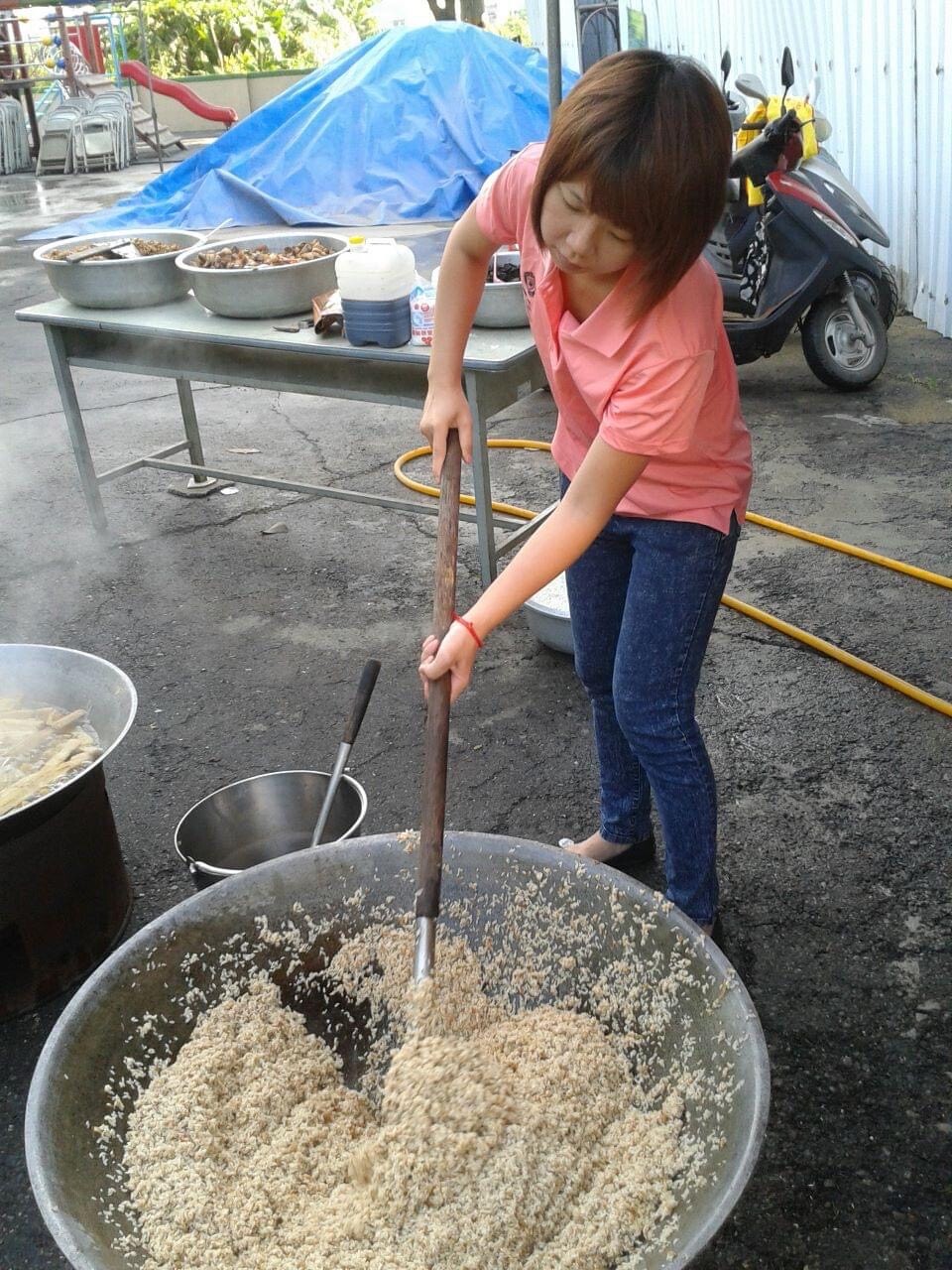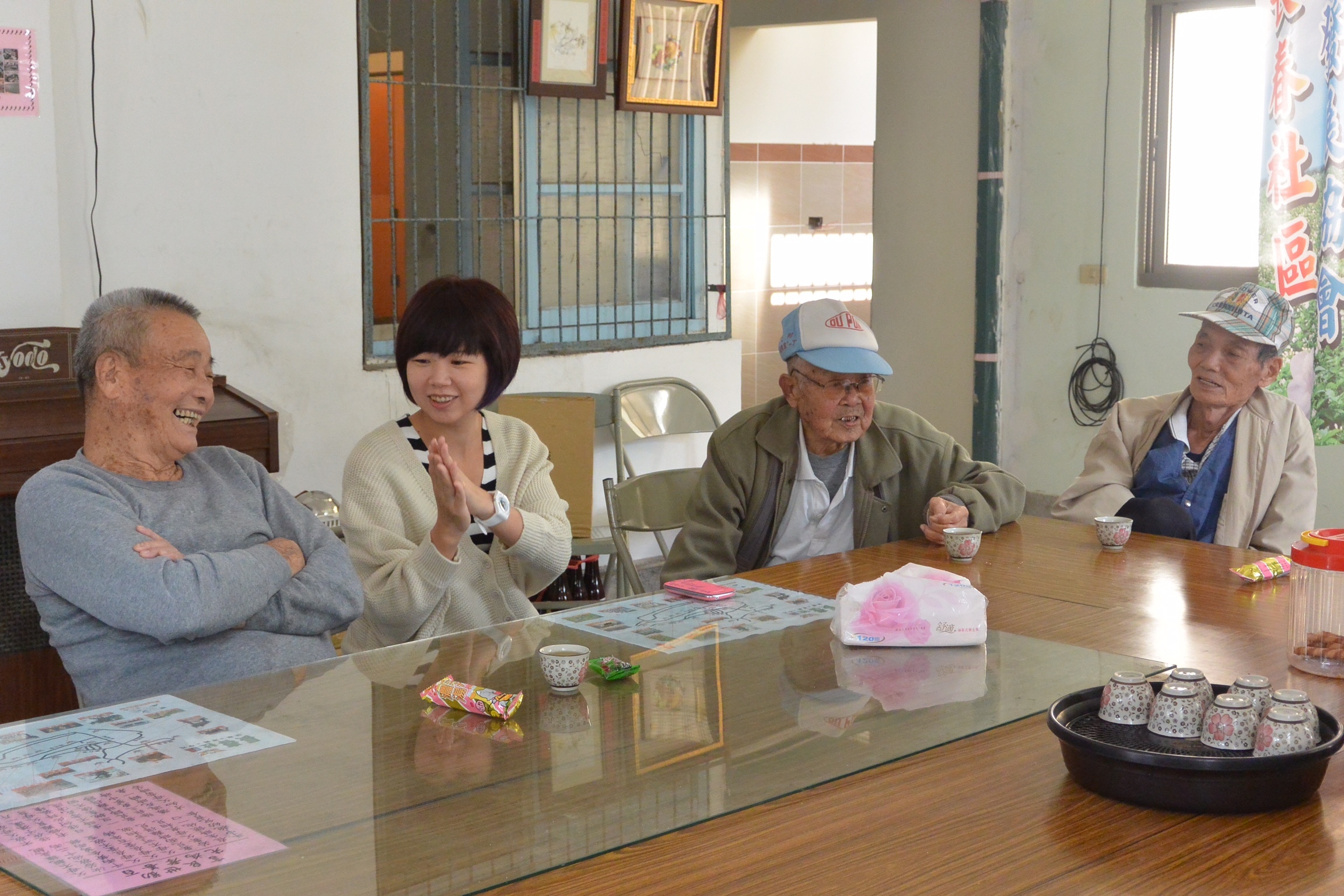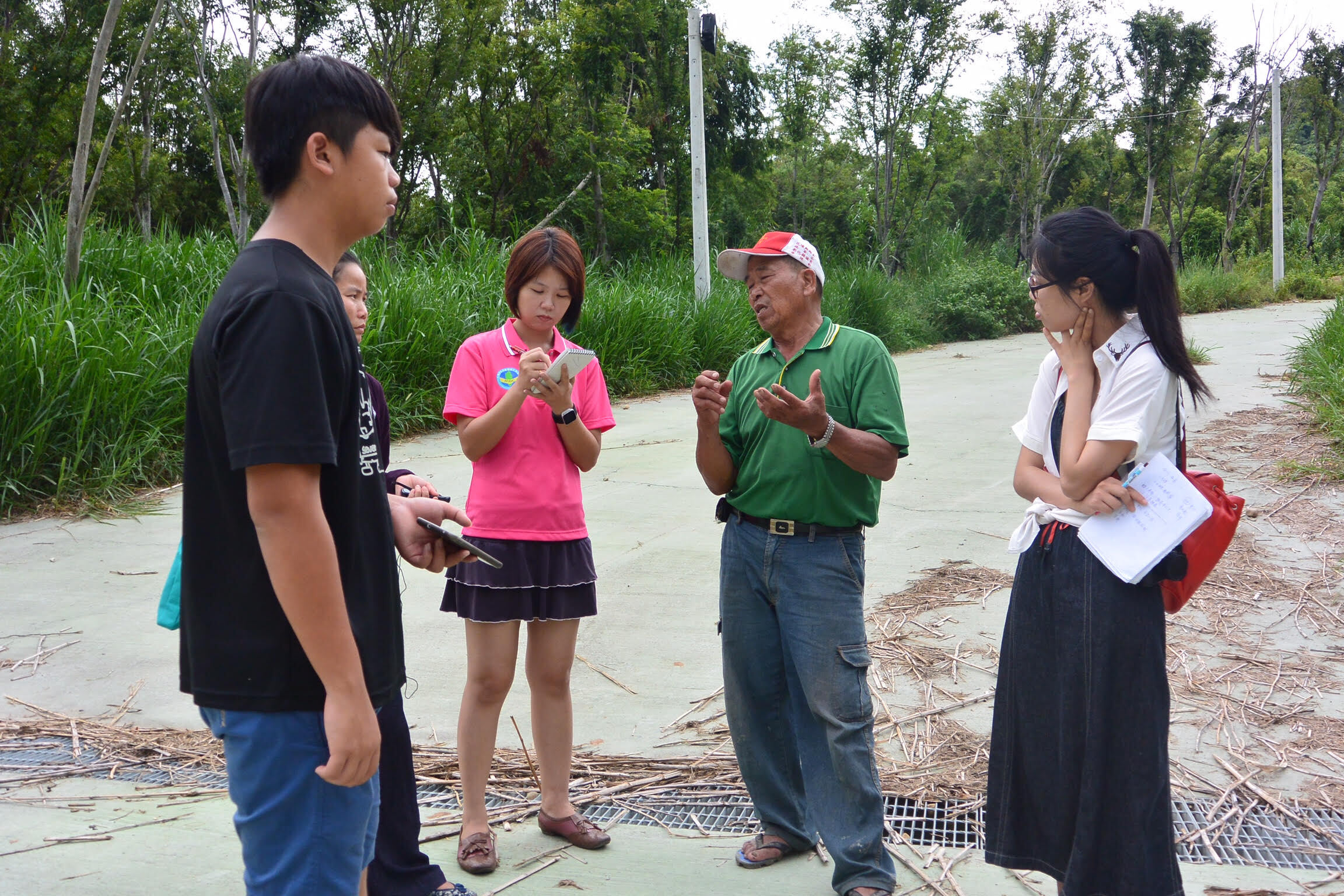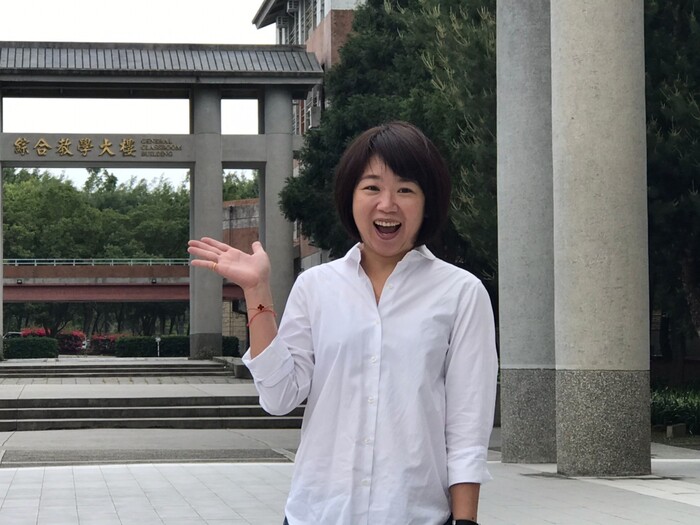Lin Li-chan is Taiwan's first "new resident" legislator — an immigrant from Cambodia who has since helped shape Taiwan's immigration policies. Since her arrival via marriage over 2 decades ago at the tender age of 20, Lin has lived an extraordinary life learning and expanding at a rapid speed, transforming session after session to become her most confident self. The key elements driving this progress are the empowerment powers of formal education and her sponge-like ability to learn and adapt.
Before she joined the legislature, Lin was studying at National Chi Nan University's (NCNU) Master program for Nonprofit Organization (NGO) Management. Now, she's enrolled at NCNU's Department of Southeast Asian Studies, advancing marriage rights for immigrants and advocating for the rights of Taiwan's new residents.
In the 2016 Country Reports on Human Rights Practices compiled by the US Bureau of Democracy, Human Rights, and Labor, Lin represented two of the markers that Taiwan was highlighted for — as a woman in government and as an immigrant, becoming the pride of both Taiwan and Cambodia.
Lin was introduced to her husband by a matchmaker, and during their first encounter, they got engaged, purchased engagement cakes, and said goodbye at the airport. The 2-hour whirlwind meeting was so fast-paced that many details were omitted or misconstrued, including where her fiancé comes from.
When asked by relatives and friends, her mother guessed "China" because he spoke Mandarin. Their Cambodian community was not familiar with Taiwan, so Lin began learning about her future home by watching Taiwanese television shows and dramas. Her expectations were somewhat dashed when she moved into a crowded Sanheyuan, the traditional U-shaped courtyard home of Taiwan.
"When it rains, it pours outside but drips inside as well. There is a hole in the roof between the kitchen and restroom area, so we place a plastic basin there. I started to realize that life in Taiwan was different than what was portrayed on TV," she recalls.
After marriage and relocating to Taiwan, Lin tried to seek work at two hair salons. The first boss was distrustful of foreign-born spouses and quickly fired her; the second decided to cheat her out of proper wages by paying her a monthly salary of just over NT$1,000. This led her to choose to volunteer her time at school for four years straight once her kids reached school age.
Such events and encounters became the catalyst for her returning to school: "When my kids are doing homework, they come to me with questions, and I often respond with, 'stop asking so much' and if that doesn't deter them, I would hold up a clothing hanger intimidatingly. " The threat is enough to seal her daughter's lips, but she would remain unsatisfied for days.
"It gets even better when they start asking me about sentence construction. I tell them to just wait for the teachers to do the corrections." She wasn't aware then that sentence practices were corrected differently than multiple choices, and this misunderstanding triggered a rupture in mother-daughter relations for the next 6 months.
The daughter then begins to enquire about other things, such as "did your country ever teach you Mandarin? Why don't you know anything?" Once, upon finishing preparing a meal, Lin walked by a window and overheard her son being lectured by his older sister on their mother's home country not speaking Mandarin. Lin furiously rushed out and began yelling "who says I don't know Mandarin? I'll read it to prove it."
That incident also made Lin see the clear merits of going to school herself after the hard years of raising their kids to adulthood. Beyond the pursuit of expanding one's horizons and holding academic degrees, it was necessary because she was a mother and an immigrant and going to university would best prepare her for equipping her kids for their lives ahead.
She started studying at the Department of Beauty Science of Changhua-based Chienkuo Technology University, then enrolled at the Department of Social Work and Child Welfare at Taichung's Providence University. She joined NCNU's Master program for Nonprofit Organization (NGO) Management during the program's inception year, becoming its first immigrant student among some 20 students.
She passionately enjoyed going overseas for annual teaching assignments during the master's program, which led her to pursue her Ph.D at NCNU's Department of Southeast Asian Studies, ambitiously taking on additional courses in business management and economics as well.
This brings her tally up to 3 schools, 4 departments, and 5 areas of studies — a record that Lin is proud of and happy with. "People think of school as a one-track career path, like what my college teacher used to say, beauty science professors need to study the same field in both undergraduate and graduate years. But I said 'No,' I wanted to study different things, interdisciplinary stuff that made me happy."
The self-motivated lady had a rough start in her academic journey though, having to almost beg to be accepted to one of the schools. This is why she never took university for granted, taking supreme care to never miss any classes and often becoming the only student to approach the instructor directly.
She also became a teaching assistant, reasoning that she could earn some extra cash while learning even more. "I was making up to NT$300,000 per year at Chienkuo Technology University by seeking out all the opportunities available. I found the experience delightful, basically like getting paid to learn, because all the instructors will impart their knowledge when you are willing to work with them."
Lin would joke with her fellow students, "don't you dare quit on me, because if you guys aren't around to help, I won't make it either." She was elected class representative for 8 semesters over 4 years, establishing several student associations while volunteering time for social work. This made her well-suited for legislative responsibilities.

Lin engages intensively in community events as a volunteer. She is pictured here helping make Zongzi, a signature glutinous rice snack that the Taiwanese eat on Dragon Boat Festival. Photo courtesy of Lin Li-chan


During her legislative term, Lin conducted a series of grassroots surveys on employment conditions and regional industries. She is pictured here talking to the people of Changhua County's Changchun Community. Photo courtesy of Lin Li-chan
Formal education brought personal inspiration, professional advancement, and social responsibilities to Lin, leading to her becoming the first "new resident" or immigrant to be elected to Taiwan's legislature.
"At the start, my family thought, well, others who marry to Taiwan are all working hard at earning cash, but I am working on this sort of stuff instead, not getting financially rewarded but having to pay with my own time and money instead," she says.
Her Cambodian family members took it one step further because of their disbelief. "Back then, maybe because of the war, most people viewed politics as a taboo topic; regular citizens did not even look at, talk, or touch politics."
"Our family was the same, we would warn each other about spying ears behind all walls, like 'if you mentioned someone [negatively] in passing, you might be disappeared tomorrow.' This was a common saying in our family, so they cannot understand my participation in [Taiwan] politics," she adds.
Lin continues to pursue social work and political participation despite the misgivings of her family in Cambodia, because she began to realize that she has more to share with others than ever before.
"When I first arrived to Taiwan with nothing, I had to ask for help and rely on other people for everything, from buying things to going to the hospital, because I could only communicate by gesturing," she says." It was only until I began partaking in community affairs that I found a sense of belonging and achievement, knowing that I have so much and am capable of giving back."
Utilizing her own immigration experience, Lin pushed for many legal reforms as an elected official, aggregating over 100 amendments to government policies. Her legislative accomplishments include long-waited improvements to the Nationality Law (國籍法) that have stalled for over a decade, so that immigration loopholes no longer strand those in love.
For example, she cites the classic "foreign-born spouses' football club," in which members who give up their previous nationality run into trouble when applying for ROC (Taiwan) nationality for marriage, becoming stateless "balls" bounced between two nations as a result. Under the amended law, spouses can now work towards applying for Taiwanese citizenship before having to renounce their previous nationality.
Lin was also a key proponent calling for the successful abolition of a problematic immigration criterion: proof of funds (POF). "This reform was ratified after three legislative reviews. We don't consider financial poverty as a [legal] impediment to forming or uniting families."
Before Lin's series of reforms, foreign-born spouses from China used to have to wait a full decade before they could apply for kitchen, cleaning, or temporary jobs. Then, this requirement applied to even those who have already procured Taiwanese identity cards. Now, China-born spouses can immediately begin working in Taiwan upon receiving their national IDs.
Lin also discovered that such transnational marriages tend to send their children back to the home countries of their mothers, usually for a prolonged period of time due to economic distress, but by the time they return to Taiwan at school age, they are unable to speak in Mandarin.
After this discovery, Lin decided to introduce intermediary programs for addressing this issue. Her proposal was accepted by the government, which established a dedicated task force for its implementation in 2017 with funds from the national budget. This helps children regain their full educational rights and acts as a buffer for adverse familial issues.
As for overseas compatriots studying in Taiwan, Lin proposed that the Ministry of Education should provide additional support apart from the Overseas Compatriot Affairs Council, citing their likely economic disadvantage. She believes that their tuition should be fully subsidized and a living stipend should be provided.
Another systemic issue that Lin sought to rectify was the six-month wait for entry to Taiwan's national health system for new residents who have lived in the country for less than six months. This was an unnecessary prerequisite and an exceptionally dangerous one for pregnant women.
"So there was a pregnant lady from Vietnam, who only came for a few months, and because of pregnancy-related complications, fell into a permanent coma after suffering excessive intermenstrual bleeding. I feel like, such details are living rights that should be protected, and I will continue to do this work after [my legislative term ended] too."
After working at the Legislative Yuan, Lin served as consultant to Kaohsiung City Government, efficiently identifying new areas for reform in a short span of time with a series of experts, scholars, and city agencies. This included the compilation of Kaohsiung Labor Bureau's essential services and useful information in seven languages for migrant workers and new residents.
The consultancy experience affirmed her belief in "the importance of gathering a network of experts who care about migrant issues, add them to Kaohsiung's immigration policy database, and periodically invite them to policy seminars and presentations."
Upon leaving the Kaohsiung City Government team, she received emotional comments like "in bureaucratic government systems, they've been waiting decades for someone like you, but you could only spare a few months" from her former teammates on Instagram.
This brought great comfort to Lin, who reflects back with a laugh on how "at least my work performance didn't make them feel 'why are you even here,' that they didn't mind being overworked by me; they even told me that, we've been waiting for you."
Lin explains that the reason why she has so many ideas and proposals, including social awareness campaigns that redefine values for our contemporary society, is partly because she received a good education. The fundamental theories and frameworks imparted became her career's toolbox, allowing her to quickly operate in a professional capacity.
As the epitome of an interdisciplinary thinker, Lin plans to study the socioeconomic and political history of Cambodia for her Ph.D thesis, with a focus on nonprofit organizations (NPOs) — their origins and how they've been attempting to push the Cambodian government for reforms.
"We see that NPOs have been there for 20, 30 years; but the problems remain. Are non-governmental organizations (NGOs) not maximizing their effectiveness in aid and support, or are NGOs forgetting to remind the government of its job? This is worth reflecting on."
To Lin, Taiwan and Cambodia are both treasured homelands that she hopes to see develop in an even better direction: "Few years back, I returned there to give a presentation, where I discovered that many Cambodian students and especially those who've worked for the government were all quite interested in Taiwan. I feel like many Taiwanese are curious about Cambodia as well."
This led Lin to postulate, "Is there a divide somewhere? I feel like I can be that bridge to help facilitate exchanges and information. By examining how each side handles certain topics based on case studies, perhaps both sides will ultimately benefit."
In yet another cross-cultural encounter, Lin began teaching a course on social work at NCNU's Indigenous Education Center: "So a new resident is now teaching indigenous Taiwanese students. After I shared my background, my pupils told me that they've got my back, which made me quite happy. It was a reversal of roles, of perspectives, which was great."
Upon exploring each new realm and field, Lin is always humble, studious, and positive in thinking. She is now reaping the fruits of her hard labor, shattering socioeconomic constraints and preconceptions about new residents, and changing the world while changing with it. NCNU is proud of her.
